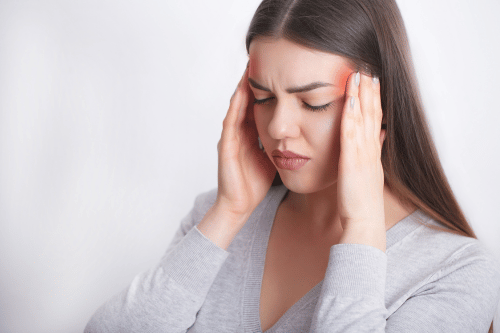TMS Side Effects: What to Expect from Transcranial Magnetic Stimulation
What Is Transcranial Magnetic Stimulation (TMS)?
Transcranial Magnetic Stimulation (TMS) is a non-invasive treatment method that uses magnetic pulses to stimulate nerve cells in the prefrontal cortex of the brain. This technique is an effective depression treatment, particularly for individuals with treatment-resistant depression who have not responded to antidepressant treatments or other forms of treatment like electroconvulsive therapy.
TMS therapy involves direct stimulation of targeted brain regions using an electromagnetic coil placed on the scalp. Unlike invasive procedures, it does not involve surgery or anesthesia, making it a safe procedure for many patients.
Overview of TMS Therapy
TMS therapy, also known as rTMS treatment (Repetitive Transcranial Magnetic Stimulation), works by delivering magnetic field pulses to the brain tissue responsible for mood regulation. This alternative treatment option is commonly used for individuals diagnosed with major depression, Generalized Anxiety Disorder, obsessive-compulsive disorder, and post-traumatic stress disorder.
A full treatment plan typically consists of weeks of treatment, with treatment sessions scheduled five times per week over four to six weeks. Each therapy session lasts between 20 and 40 minutes.

Common Side Effects of TMS
Most patients experience minimal side effects during or after treatment for depression. However, some negative side effects may occur, though they are generally mild and temporary.
Headaches
One of the most common side effects of TMS therapy is headaches. These are typically mild and can be managed with counter pain medication like ibuprofen or acetaminophen. Headaches often improve as brain activity adjusts to the magnetic stimulation.
Scalp Discomfort
Patients frequently report scalp discomfort or scalp pain during or after treatment sessions. This occurs due to the magnetic energy interacting with the electromagnetic coil placed on the head. Adjusting pulse strength or positioning of the magnetic coils can help reduce patient discomfort.
Fatigue
Some patients feel an increase in energy, while others may experience mild discomfort or fatigue following therapy sessions. The effects on brain function vary from person to person, and fatigue usually resolves as treatment progresses.
Uncommon Side Effects of TMS
Although TMS is a safe option, some patients experience adverse side effects that are less common.
Seizures
There is a very low risk of seizure with TMS, estimated to be less than 0.1%. Patients with a history of epilepsy, seizure disorders, or brain tumors are at higher risk. A thorough medical history review is conducted to minimize this risk.
Altered Sensory Perceptions
Some patients report hearing loss, auditory disturbances, or seeing flashes of light during magnetic field pulses. These potential side effects are usually temporary. Patients with cochlear implants, deep brain stimulators, or cardioverter defibrillators should consult their healthcare provider before considering TMS therapy.
Mood Swings
Since TMS directly affects brain function, some patients report temporary emotional responses, including hypomanic symptoms, irritability, or mood fluctuations. However, these effects are rare and usually stabilize over time.

Safety Profile of TMS Therapy
TMS therapy is considered a safe procedure with a strong success rate for individuals with depressive disorder. Unlike antidepressant medications, it does not cause weight gain, sexual dysfunction, or other systemic side effects.
Eligibility Criteria for TMS Treatment
Not all patients qualify for TMS therapy. Medical conditions, previous psychiatric disorders, and the presence of metal devices in the head impact eligibility.
Factors Influencing Eligibility
- History of seizures: Individuals with history of epilepsy or seizure disorders need a risk assessment.
- Metal implants: Patients with aneurysm coils, metal plates, bullet fragments, or magnetic implants may not be eligible.
- Medical devices: People with electronic devices like deep brain stimulators or implants for hearing need evaluation.
Impact of Prior Mental Health Conditions
TMS is primarily used for patients with depression, but it can also be beneficial for anxiety disorders, bipolar disorder, and psychiatric treatment methods. However, individuals with severe depression or schizophrenia should be carefully assessed before treatment.
Duration and Frequency of TMS Sessions
A typical treatment plan includes daily activities involving treatment sessions over four to six weeks of treatment. The number of pulse trains and pulse strength varies based on brain health and clinical response.
Addressing Misconceptions About TMS
“TMS Is the Same as Electroshock Therapy”
Unlike electroconvulsive therapy, TMS does not use an electric current or cause memory loss.
“TMS Causes Permanent Brain Damage”
There is no evidence that TMS causes brain damage or long-term harm to brain tissue. Studies show that TMS improves brain function and neural pathways involved in mood control.
“TMS Is Painful”
Some patients feel facial twitching, jaw pain, or mild discomfort, but TMS is not painful. Adjusting the electromagnetic pulses can help reduce adverse effects.
The Effectiveness of TMS Therapy
TMS has a high success rate in treating patients with treatment-resistant depression.
Insights from Clinical Trials
Clinical research shows that 50–60% of patients with treatment-resistant depression experience clinical response, while one-third achieve full remission.
Balancing Benefits and Side Effects
For many patients, the potential benefits of TMS outweigh the potential risks. Since TMS does not cause negative side effects like weight gain or effects of medications, it is considered a safe option for those who cannot tolerate prescription medication.
Conclusion: Making an Informed Decision About TMS
TMS is an effective depression treatment that offers a non-invasive therapy alternative for patients with depression and other mental health disorders. While mild side effects like scalp discomfort or headaches may occur, TMS does not have the long-term effects seen with depression medications.
Consulting a health care provider or treatment team can help determine whether TMS is the right psychiatric treatment method for your mental illness.










